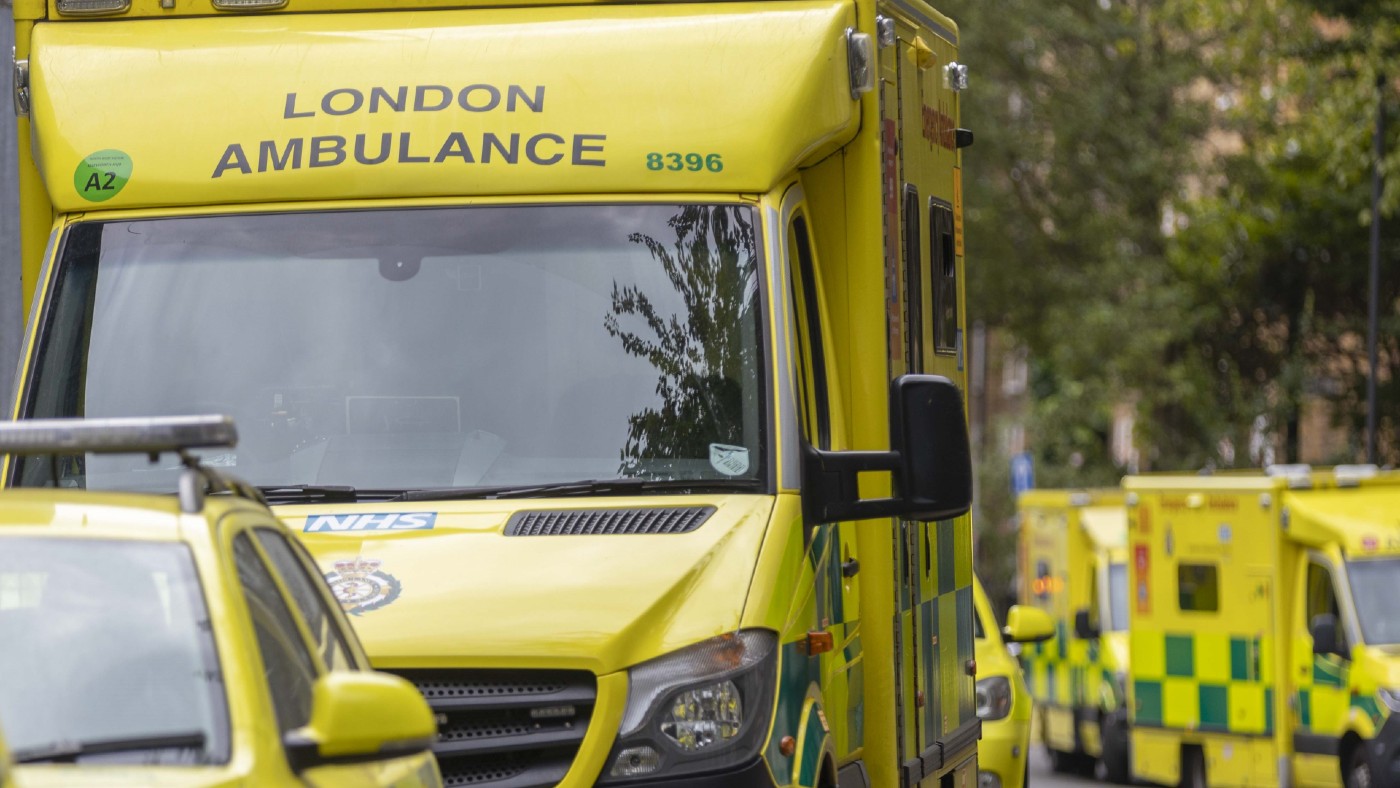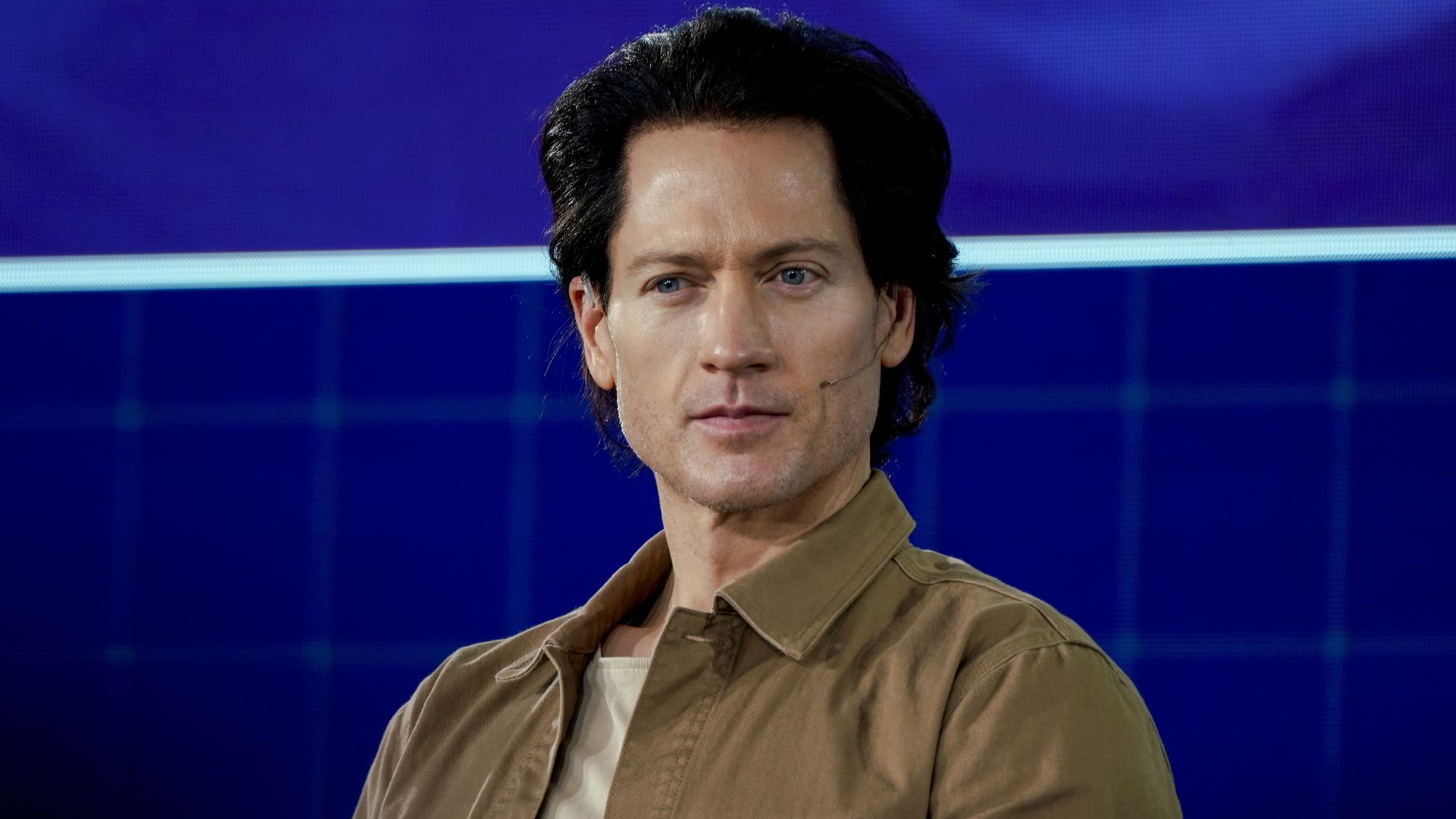Why the entire NHS system is ‘on its knees’ – and what should be done to fix it
Is the NHS crisis more about funding – or about how its money is spent

A free daily email with the biggest news stories of the day – and the best features from TheWeek.com
You are now subscribed
Your newsletter sign-up was successful
The NHS “horror stories” keep coming, said Rachael Bletchly in the Daily Mirror: the 62-year-old Shropshire woman who spent ten hours on a path with a broken leg waiting for an ambulance; the family in Cornwall who had to build a makeshift shelter for their injured 87-year-old father as he lay outside for 15 hours waiting for paramedics. These are just two of many such tales illustrating the dire state of the health service.
There are currently some 6.7 million people waiting for NHS treatment. Hospitals, meanwhile, are full of patients who can’t be discharged owing to a lack of care-home beds or community services to support them. This means that there’s no space on wards to transfer patients out of A&E, which in turn means that ambulances are queuing outside hospitals for hours, unable to offload patients and attend the next emergency. The whole system is “on its knees”.
“For much of its 74-year history, the NHS has stumbled from crisis to crisis,” said Ian Birrell in The i Paper. But this one feels “different, more existential”. The Covid pandemic has brutally exposed long-standing problems with the service, driving it to “breaking point” and prompting a dramatic loss of public confidence.
The Week
Escape your echo chamber. Get the facts behind the news, plus analysis from multiple perspectives.

Sign up for The Week's Free Newsletters
From our morning news briefing to a weekly Good News Newsletter, get the best of The Week delivered directly to your inbox.
From our morning news briefing to a weekly Good News Newsletter, get the best of The Week delivered directly to your inbox.
We’re past the stage of sticking-plaster solutions, said Nora Colton in The Sunday Times. Rishi Sunak has proposed fining people £10 for missing appointments, but that’s not going to cut it. We need much bolder reforms. Whatever happens, we’ll likely have to spend more on health, as many EU countries do.
‘Less about funding’
The NHS’s problems have less to do with funding than with how that money is spent, said Labour’s former health secretary, Alan Milburn, in The Telegraph. About 70% of health spending goes on dealing with an “ever-growing tsunami of chronic diseases like diabetes, arthritis and dementia” that the NHS is poorly set up to deal with. Hospitals are absorbing most of the cash, “when what is needed is a system geared to help keep patients healthy and out of hospital”.
With early diagnosis and treatment, many patients could be kept off wards, and many emergency admissions could be prevented. The NHS must harness new technology to aid this approach, while at the same time seeking to give patients more choice and control.
“Every NHS patient on a waiting list should be able to choose faster treatment – paid for by the NHS – at those hospitals, public or private, with the shortest wait times.” The system also needs to be made more transparent. One thing’s for sure: “doing more of the same will not turn the situation around”.
A free daily email with the biggest news stories of the day – and the best features from TheWeek.com
-
 Is Andrew’s arrest the end for the monarchy?
Is Andrew’s arrest the end for the monarchy?Today's Big Question The King has distanced the Royal Family from his disgraced brother but a ‘fit of revolutionary disgust’ could still wipe them out
-
 Quiz of The Week: 14 – 20 February
Quiz of The Week: 14 – 20 FebruaryQuiz Have you been paying attention to The Week’s news?
-
 The Week Unwrapped: Do the Freemasons have too much sway in the police force?
The Week Unwrapped: Do the Freemasons have too much sway in the police force?Podcast Plus, what does the growing popularity of prediction markets mean for the future? And why are UK film and TV workers struggling?
-
 Growing a brain in the lab
Growing a brain in the labFeature It's a tiny version of a developing human cerebral cortex
-
 A real head scratcher: how scabies returned to the UK
A real head scratcher: how scabies returned to the UKThe Explainer The ‘Victorian-era’ condition is on the rise in the UK, and experts aren’t sure why
-
 Health: Will Kennedy dismantle U.S. immunization policy?
Health: Will Kennedy dismantle U.S. immunization policy?Feature ‘America’s vaccine playbook is being rewritten by people who don’t believe in them’
-
 How dangerous is the ‘K’ strain super-flu?
How dangerous is the ‘K’ strain super-flu?The Explainer Surge in cases of new variant H3N2 flu in UK and around the world
-
 Obesity drugs: Will Trump’s plan lower costs?
Obesity drugs: Will Trump’s plan lower costs?Feature Even $149 a month, the advertised price for a starting dose of a still-in-development GLP-1 pill on TrumpRx, will be too big a burden for the many Americans ‘struggling to afford groceries’
-
 Ultra-processed America
Ultra-processed AmericaFeature Highly processed foods make up most of our diet. Is that so bad?
-
 The ‘menopause gold rush’
The ‘menopause gold rush’Under the Radar Women vulnerable to misinformation and marketing of ‘unregulated’ products
-
 The quest to defy ageing
The quest to defy ageingThe Explainer Humanity has fantasised about finding the fountain of youth for millennia. How close are we now?